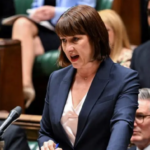Santander UK has set aside £295 million to potentially compensate customers affected by the mis-selling of car loans, as the controversy surrounding the motor finance industry continues to escalate. The bank’s provision comes amid concerns that the mis-selling scandal could lead to a redress bill of up to £30 billion, with Santander’s move contributing to nearly £1 billion in compensation provisions across the industry so far.
The issue stems from a wide-ranging review by the Financial Conduct Authority (FCA) into potentially unfair commissions in motor finance deals, which has prompted several lenders to set aside funds. Santander’s decision follows a landmark Court of Appeal ruling last month that expanded the scope of the issue and raised the possibility of mass redress for consumers.
The Court of Appeal judgment significantly widened the legal requirements around commission disclosures in motor finance agreements. The ruling found that any commission not properly disclosed or consented to by the borrower was unlawful, making lenders liable for repaying affected customers. This shift in legal interpretation has sent shockwaves through the industry, with lenders revising their practices and temporarily suspending some operations.
Santander’s provision, disclosed in its third-quarter figures, includes estimates for operational and legal costs, as well as potential compensation. The bank acknowledged significant uncertainties regarding the extent of any misconduct, stating that the financial impact could be either higher or lower than the amount set aside. The decision to make provisions follows growing expectations that lenders will be forced to compensate customers due to these mis-selling practices.
The provision also contributed to a sharp decline in Santander UK’s pre-tax profits, which dropped to £143 million for the three months ending in September, down from £558 million during the same period last year. The bank joins other major lenders, including Lloyds Banking Group, which has set aside £450 million for similar issues.
The controversy began in early 2021 when the FCA banned discretionary commissions, which were linked to the interest rates customers paid on loans. The commission arrangements were seen as encouraging dealers to sell more expensive credit to customers. The FCA’s subsequent investigation into these practices has sparked consumer complaints, leading to a review of contracts dating back to 2007.
The Court of Appeal ruling in October compounded the issue, calling into question the adequacy of current FCA regulations. Critics, including the head of the Finance & Leasing Association, have argued that the lack of regulatory clarity allowed the court to intervene, exacerbating confusion in the market. As the legal and financial consequences unfold, the industry awaits further clarity from the Supreme Court, which may ultimately decide the future of compensation claims.









